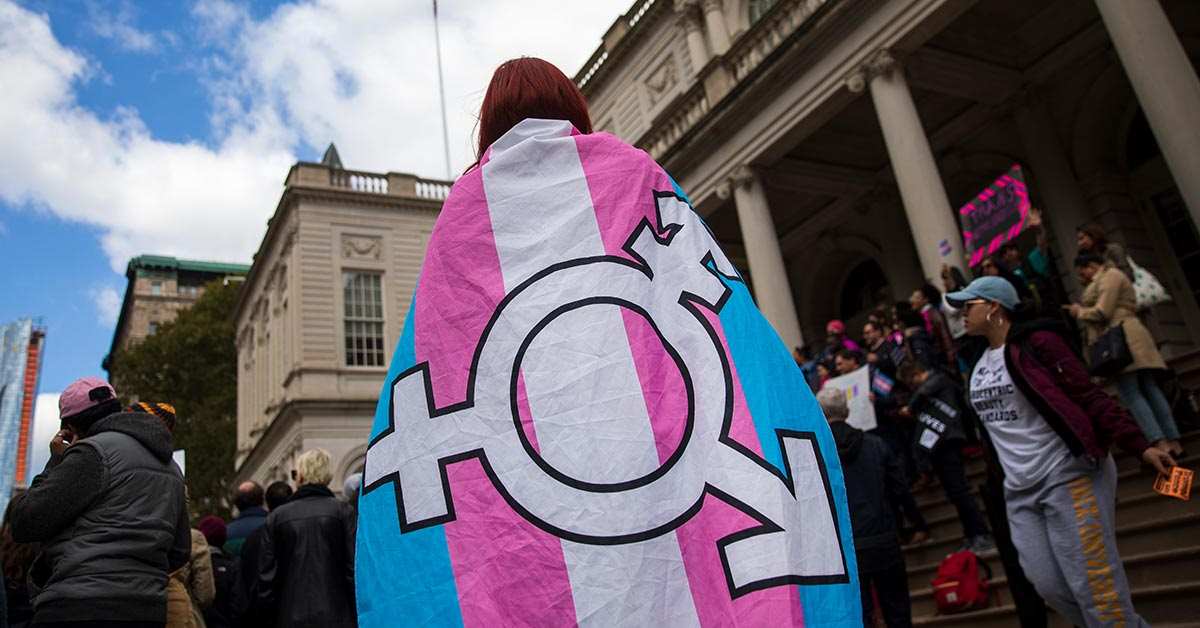Scepticalscribe
Cancelled
- Joined
- Aug 12, 2020
- Posts
- 6,644
I beg to differ.I understand your opinion on the issue. But this is an extremely rare occurrence. Your are more likely to be struck by lightning than to be a transgender woman who wins a national competition. I believe the “threat” of transgender women taking over women’s sports is greatly exaggerated.
And, if it is relatively rare now - and not as rare as you seem to suggest - unless challenged, it will become much less rare.
And, if it is not addressed - and challenged - now, it may well become the norm.
I think it interesting that those who have written (on this thread, and elsewhere) with concerns tend to fall into one of two categories: One are women, and the other are parents (of either gender) of daughters.
For the most part men, even liberal men, just don't really see this, and are not listening; it doesn't have a direct bearing on them, or their lives, and is thus partly reduced to a vague, pseudo scientific, detached discussion of balancing supposedly equivalent rights of different groups. One can only assume such a posture of lofty impartialty when the topic in question has no direct bearing on how one gets to live one's own life.
Think of the advantages a team comprised of trans athletes would have over a team comprised of (mere) female athletes, and of the temptations (to coaches, schools, etc) to seek and select for the athletes - or sportspeople - who will bring victory and glory to the team (and whatever that team represents).
This could give rise to a world - a mindset - where anyone who has been born as a woman isn't deemed a good enough "woman", to seriously compete (or be able to win) in women's events.
The message that this gives to young girls is appalling - that, leaving aside that the world is not designed for you and cultural, socio-economic, legal structural inequalities still exist, persist, (and some women's rights are being challenged and rolled back, reversed as I write and not only in Afghanistan) - but that, even in the part of the world that is reserved for you, (such as women's sports) you can be out-competed and defeated by those who were born male, with all of the social, cultural, economic - and, in the case of sport, - physical advatages that being born male affords you. That, even in women's events, being female is not good enough, not least because you are the wrong kind of female. That is an appalling message to want to send to young girls.
Moreover, this is a subject with ramifications that extend far beyond sport.
There are a few other - general - points I wish to make.
We hear much of the concerns of transwomen, but - and, to my mind, this is instructive - very little about the concerns, or facilitating the needs of transmen (although their numbers are not insignificant).
Obviously, this will hardly apply to sport (transmen will bring little by way of competitive advantage to any male sport) but it sees to me that there are wider, cultural, issues also at play here. Nevertheless, transmen do not present a direct challenge to existing situations or structures; if anything, they are almost invisible.
Put bluntly, I suspect that some of the transwomen - men who have transitioned to some degree (or wholly) to being female - having been born male, and socialised as male from a young age, - may well be bringing some of the attitudes of male entitlement and male privilege (not to mention elements of classic toxic masculinity) that they absorbed culturally and socially as young males, or as boys, or male teenagers, into the new female world that they have chosen to inhabit.
For, this desire of some of the more perfervid of the TRA movement, to demand the right to define what it is to be a woman, (reduced to weird definations where one is viewed as womb bearers, cervix bearers, with the word woman excised completely) what it is to be female, strikes me as an especially egregious example of male entitlement, - one that I find outrageous - and - as a woman - is something that I find it extraordinarily offensive.
It is quite one thing to defend trans rights, and to support the right of trans people to express themselves (and live in, and as) their preferred gender and try to help bring about a shared world where this is possible.
However, it is quite another where some in the trans movement arrogate to themselves the right to define what it is to be female, and where some groups with a pronounced preference for female only spaces - or, in the case of lesbians - female only sexual preferences - come under surprisingly sustained, and sometimes, quite vehement, attack.
Moreover, I will note that (in my experience) those who write - invariably glibly - that "life is unfair" (more usually a lazy right wing argument to defend an unjust status quo in socio-economic matters) have rarely experienced structural or systemic unfairness in their own lives.
However, as a woman, I'm tired of hearing "life is unfair" when it is used (as it almost invariably is used) to defend a policy or view or stance that simply perpetuates unfairness, refusing to acknowledge, let alone address it.
Moreover, those who write that there are "two injustices", or "unfairnesses" here, fail to distinguish (not least because they do not see the issues as applying to themsleves) that the burden of "unfairness" will not fall equally; asking women to "put up with" potential (or real) unfairness in order to facilitate the need for inclusion of transpeople is, to my mind, an ask too far, and is a facile argument (and one, note, not made by any of the women who have written on this topic).
The degrees of unfairness are not equivalent, and it is disingenuous to attempt to argue that it is. An entire gender - half of the human race - should not be asked to accept "unfairness" - or sacrifice their safety - in the interests of seeking to accommodate others.
Last edited:





